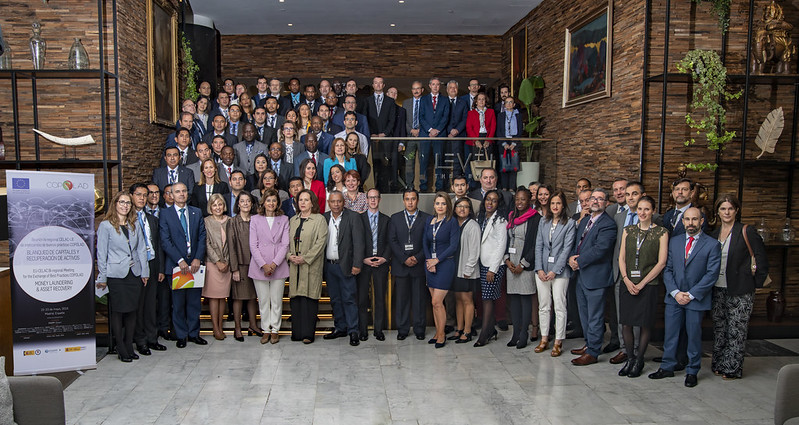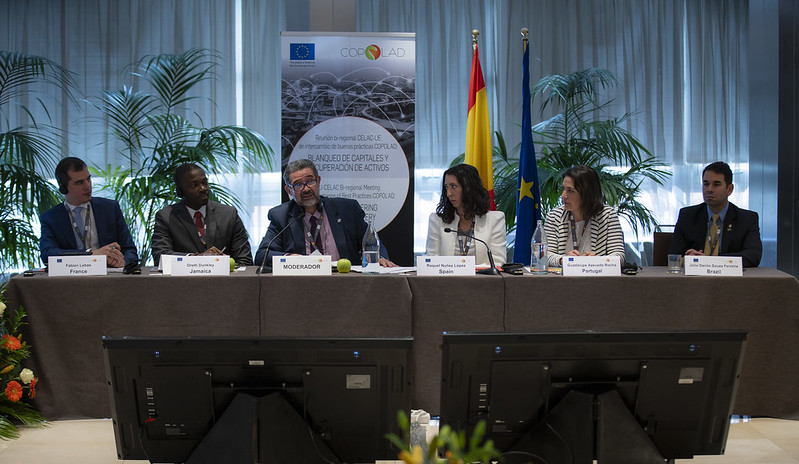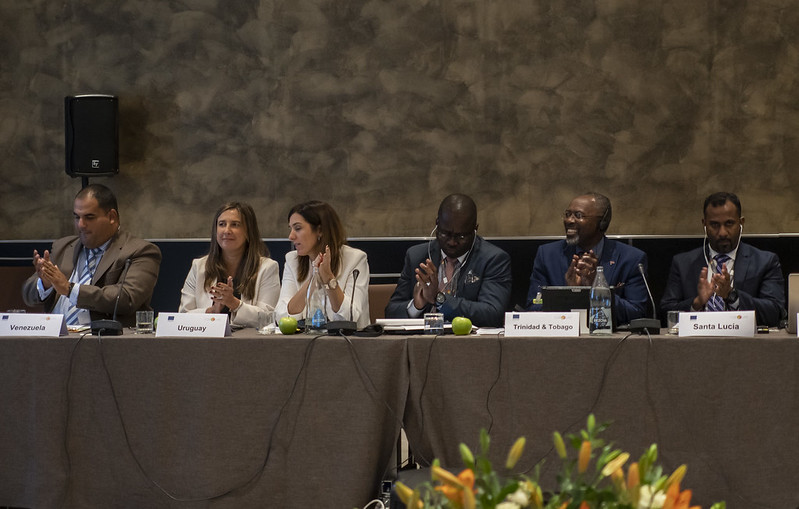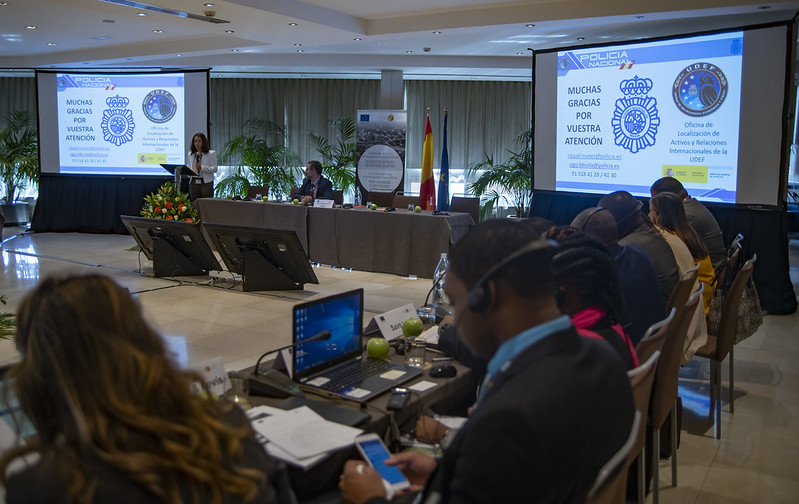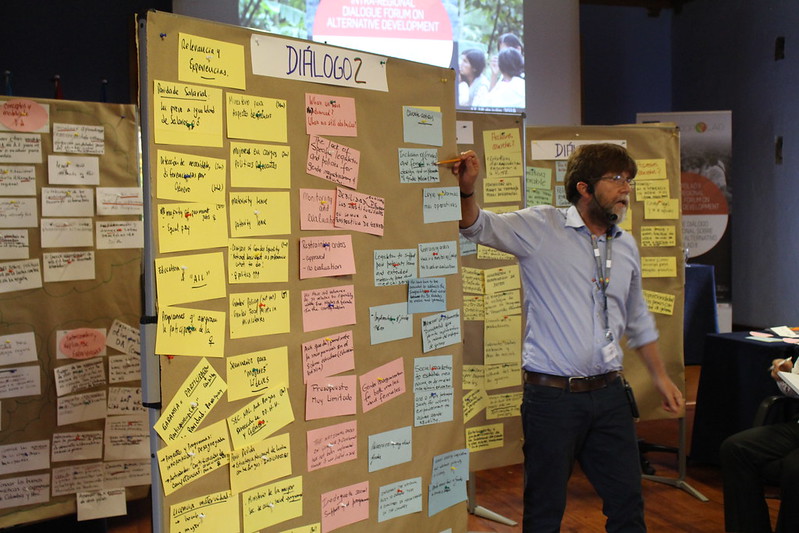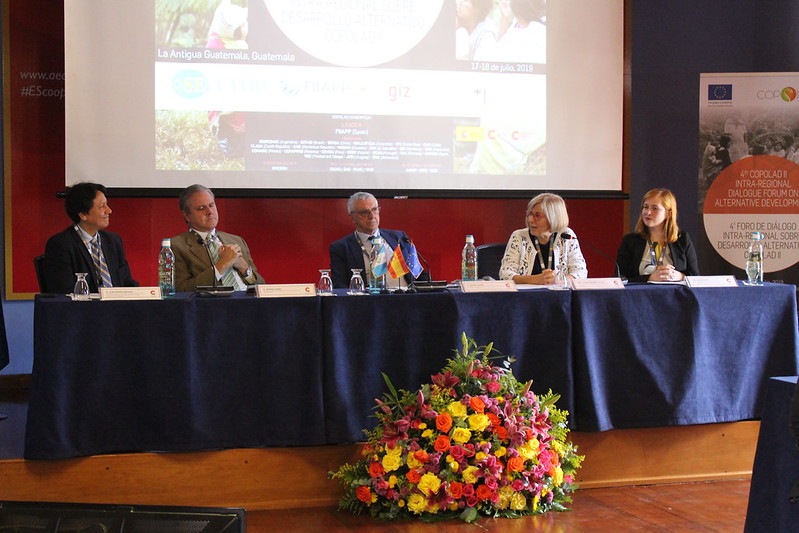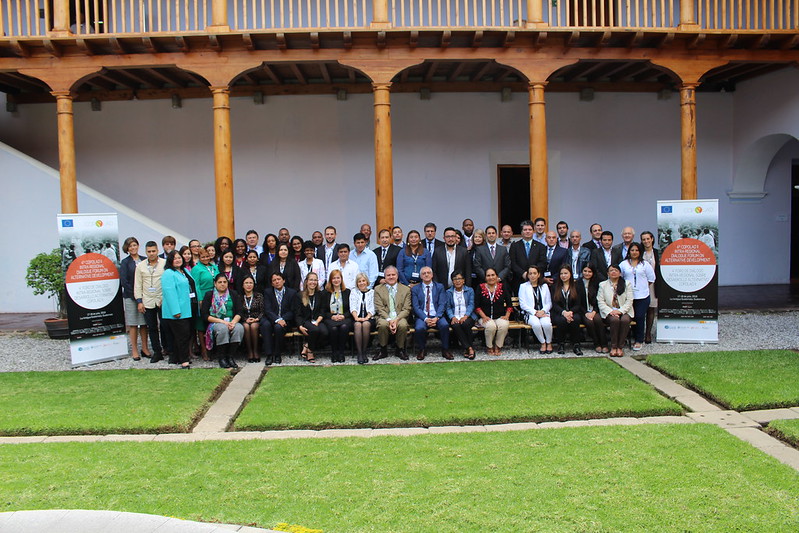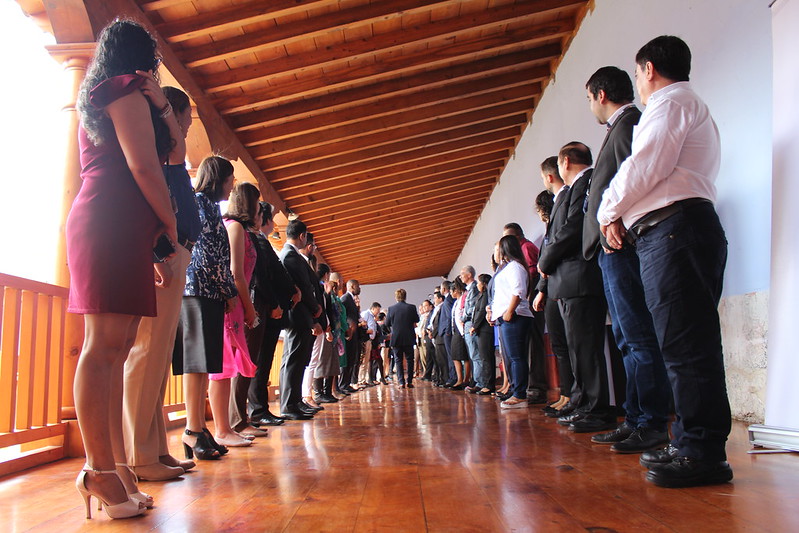Work in the field of Money Laundering and Asset Recovery in COPOLAD
Cooperation and effective work between institutions and countries to prevent money laundering through the investigation and the recovery of assets requires a coordinated effort between specialized police units in this area, Financial Intelligence Units, Specialized Prosecutors Offices and Asset Recovery Offices (AROs).
Within this framework, COPOLAD organized, in close coordination with the Intelligence Center against Terrorism and Organized Crime (CITCO - Spanish Ministry of the Interior), and the collaboration of the Government Delegation for the National Plan on Drugs (DGPNSD - Spanish Ministry of Health, Consumption and Social Welfare), the 3rd EU-CELAC Bi-regional Meeting for the Exchange of Best Practices COPOLAD: Money Laundering & Asset Recovery (Madrid, 22 and 23 May 2019).
The objective of the meeting was the exchange of best practices and lessons learned in this area, facilitating greater cooperation between all key actors in Latin American countries, the Caribbean and the European Union, together with multilateral institutions in the sector such as CICAD/OAS, Europol and the European Commission, among other institutions and different projects of the European Commission working in these fields.
The opening session was attended by Ana María Botella Gómez, Secretary of the Spanish State for Security; Ángel Alonso Miranda, Director of CITCO; Anna Terrón Cusí, Director of the International and Ibero-American Foundation for Public Administration and Policy (FIIAPP), Azucena Martí Palacios, Government Delegate for the National Plan on Drugs (DGPNSD), Ministry of Health, Consumption and Welfare of Spain; Juan González Mellizo from the European Commission representation in Spain in Spain and Teresa Salvador-Llivina, Director of COPOLAD.
The meeting provided an opportunity to continue the exchange of information and intelligence initiated in COPOLAD I, on best practices in the field of money laundering from drug trafficking, the investigation of assets and the role of Asset Recovery Offices, as well as the recycling of proceeds of crime in national drug control structures. All these aspects are key to analysing new trends and the best approaches to meet all the challenges in this area. COPOLAD II places particular emphasis on national legislation, the role of the police and the Public Prosecutor's Offices regarding to confiscation, provisional and protective measures and confiscation, the confiscation of money and other assets, their legality and aspects related to the registration, the identification of best practices for managing confiscated assets and legal instruments, computerised recording, information and management systems, as well as the importance of international, multilateral and bilateral cooperation in tracing, recovering and confiscating assets.
This is the third in a series of meetings involving representatives of all actors involved in key areas of drug supply control in CELAC and EU countries. Previous editions have addressed effective mechanisms for countering illicit cocaine trafficking routes, preventing and investigating the diversion of drug precursors and developing alternatives to imprisonment for minor drug-related offenses.
With this type of meetings, COPOLAD continues to promote the exchange of information and intelligence, as well as the analysis of best practices and lessons learned, in order to strengthen policies that are increasingly effective and capable of responding to the strategies and threats posed by transnational criminal organizations dedicated to illicit drug trafficking.
Prevention and control of trafficking in chemical precursors
The two COPOLAD Working Groups on chemical precursors continued their work, focused on legislation, together with the identification of lessons learned and best practices focused on cooperation in this area (cooperation among States, inter-agencies and with the private sector). Within the framework of the meetings of both groups in Brussels (Belgium) the documents elaborated in the last year are approved and will be presented during the 4th COPOLAD Annual Precursors Week, which will take place on 15-18 October in the city of Buenos Aires (Argentina).
- Working Group 1 on best practices and lessons learned in the field of chemical precursors: working language is Spanish and has 10 member countries: Argentina, Colombia, Costa Rica, Chile, Ecuador, Guatemala, Honduras, Peru, Uruguay and Venezuela.
- Working Group 2 on precursor control legislation: English is the working language and has 5 member countries: Antigua and Barbuda, Barbados, Belize, Dominica and Trinidad and Tobago.
On the other hand, in May 2019, COPOLAD II participated in Buenos Aires in the special meeting of experts in chemical precursors, specially invited by the Inter-American Drug Abuse Control Commission (CICAD/OAS). On that occasion, the first draft was prepared for updating the "Model Regulations for the Control of Chemical Substances Used in the Illicit Manufacture of Narcotic Drugs and Psychotropic Substances".
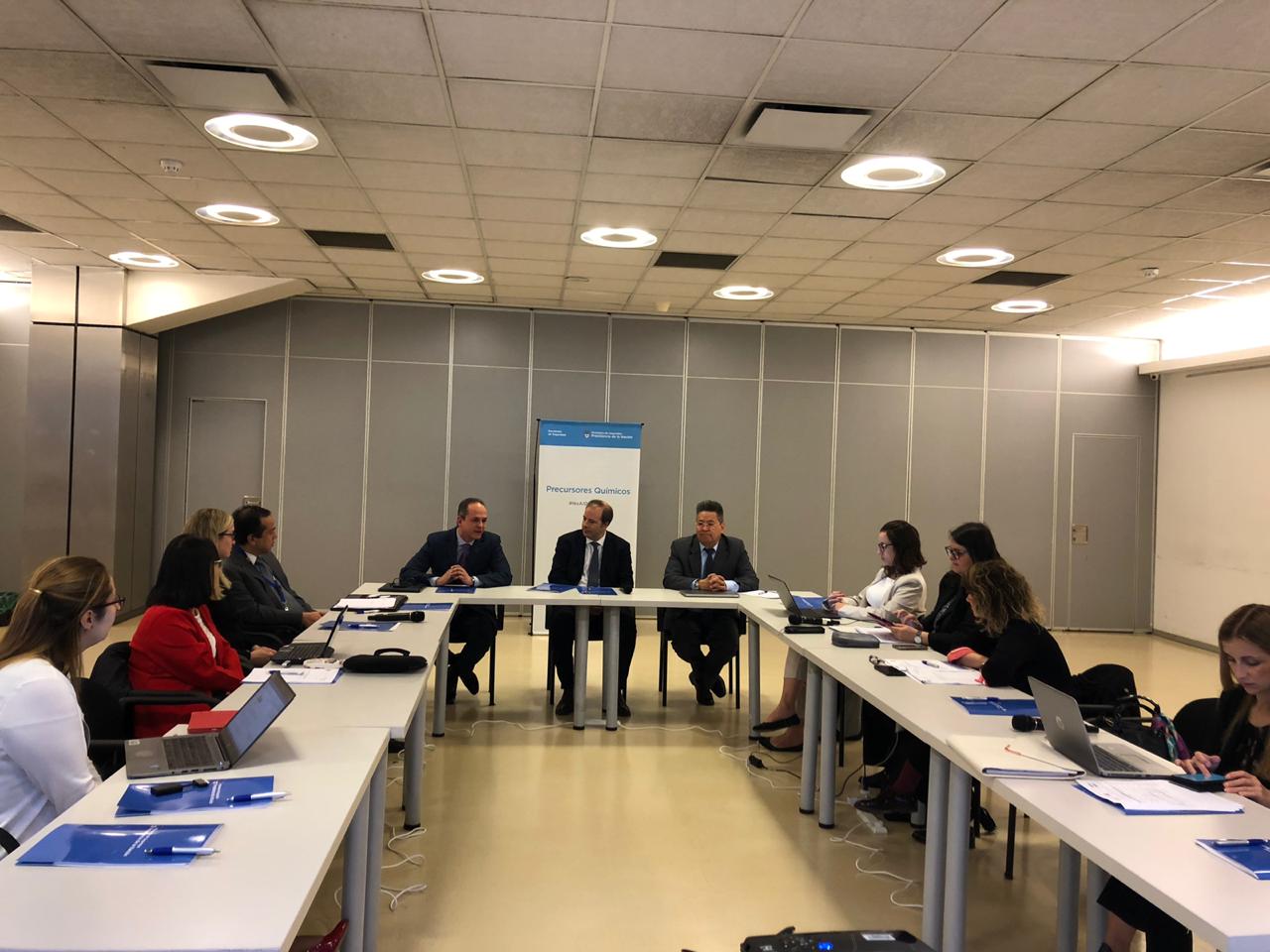
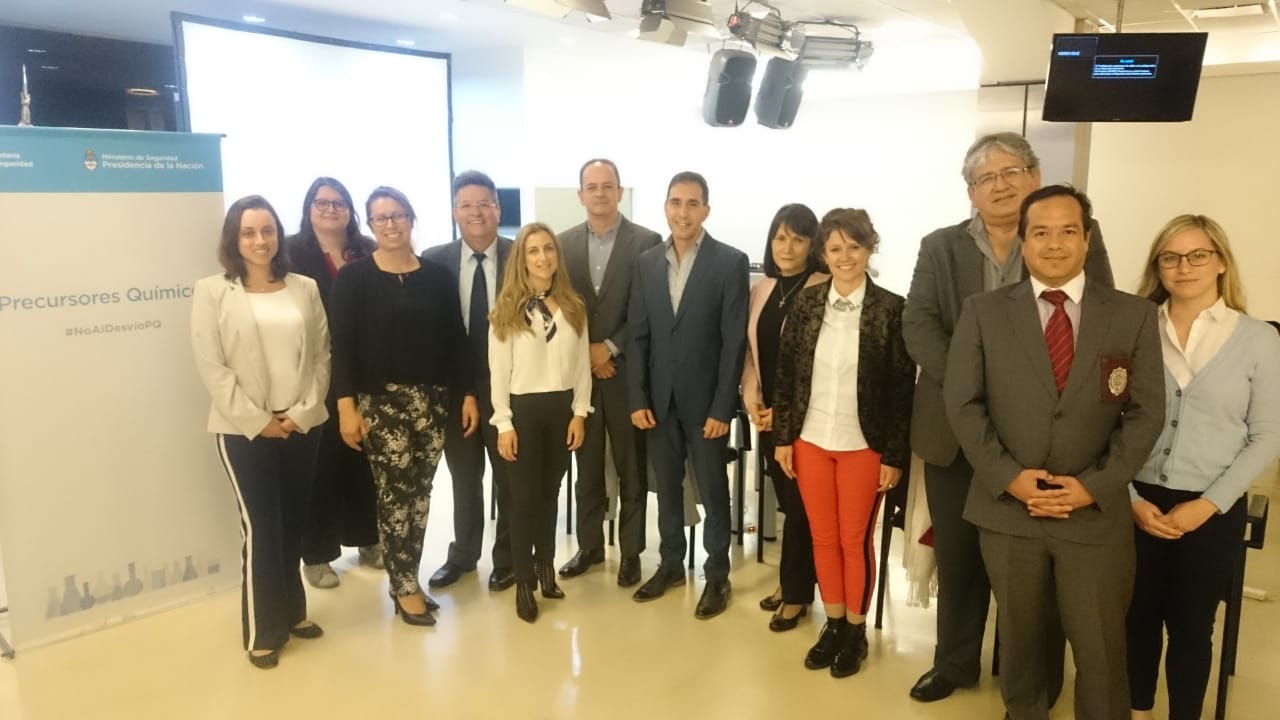
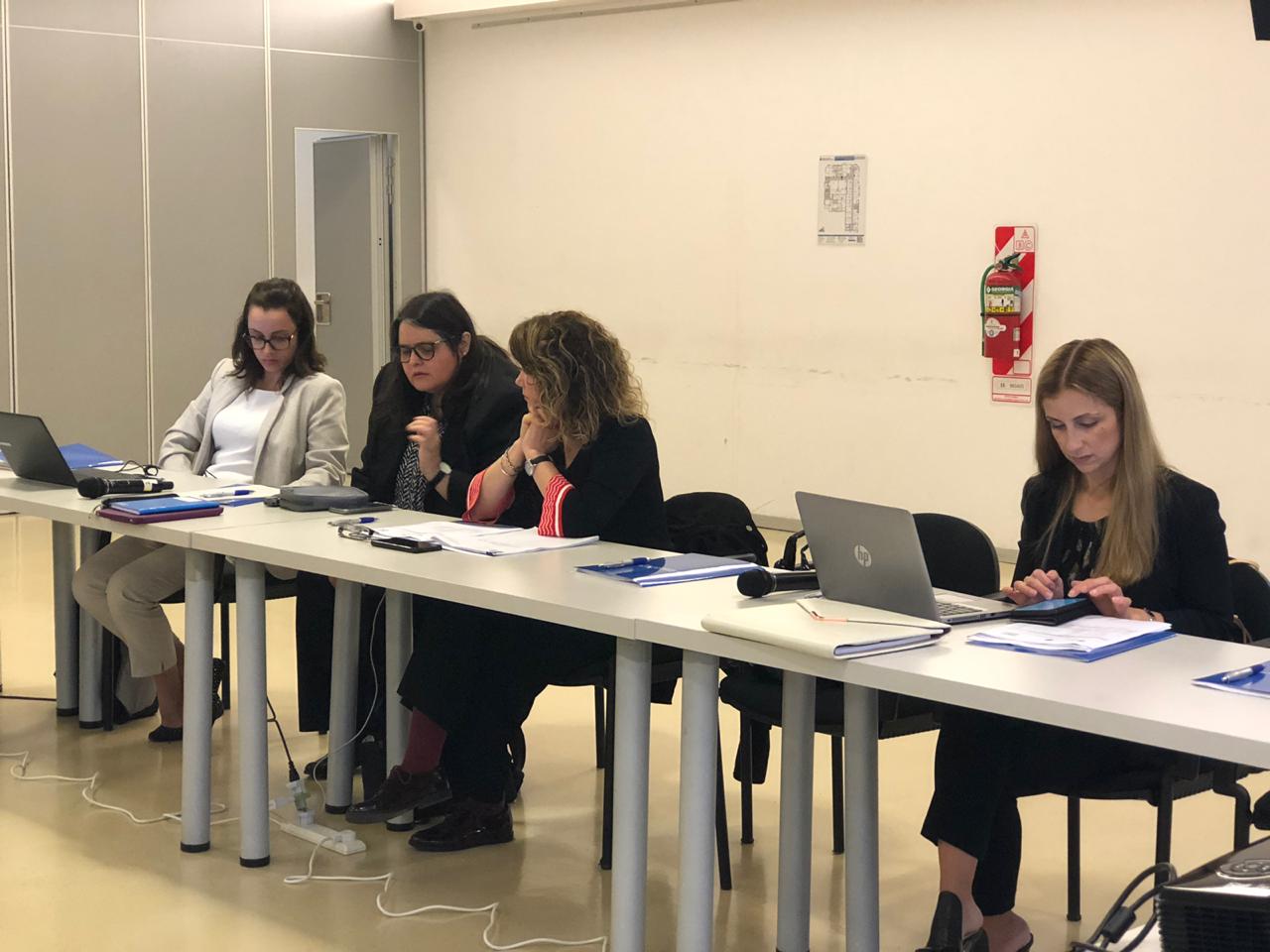
There, a small group of experts presented their proposals for updating the model regulations, the last of which was updated in 2011, and in light of the events and dynamics of the phenomenon of illicit trafficking in chemical precursors, it was necessary to update them. COPOLAD II made important contributions during the meeting on issues such as evaluation and monitoring of drug policies, good practices and lessons learned, protection of the whistleblower, links with the private sector and cooperation between states.
Finally, the updated text was finally approved in the same city, in August of the same year, after discussion days, which took place during the meeting of the group of experts on chemical substances and pharmaceutical products of CICAD/OAS, in which COPOLAD II also participated actively.
ALTERNATIVE DEVELOPMENT (AD): EXCHANGE OF EXPERIENCES AND SUPPORT FOR THE DEVELOPMENT OF EVIDENCE-BASED POLICIES
The 4th COPOLAD Intra-regional Dialogue Forum on Alternative Development was held on July 17 and 18, 2019 in the city of Antigua Guatemala. This activity was organized by COPOLAD in coordination with the Deutsche Gesellschaft für Internationale Zusammenarbeit (GIZ) GmbH, on behalf of the German Federal Ministry for Economic Cooperation and Development (BMZ), and the Executive Secretariat of the Commission Against Addictions and Illicit Drug Trafficking (SECCATID) of Guatemala.
This dialogue forum once again brought together government representatives, farmers, representatives of farmers' associations and other members of civil society as important actors in drug policy at the local level. Sixteen government institutions from Peru, Bolivia, Ecuador, Colombia, Mexico, Guatemala, Paraguay, Brazil, Honduras, El Salvador, Chile, Uruguay, Bahamas, Trinidad and Tobago, Jamaica and Suriname participated, as well as representatives of producer organizations and associations and entities such as the Inter-American Drug Abuse Control Commission (CICAD) and the International Drug Policy Consortium (IDPC).
The activity focused on analyzing the incorporation of the gender perspective and its implications in the area of Alternative Development, including advances in the countries and the presentation of best practices in this area.
This meeting closes the series of COPOLAD II meetings, initiated in 2016 in Bogotá (Colombia), followed by those held in 2017 in Santa Cruz (Bolivia) and in Lima (Peru) in 2018, and whose objective has been to consider, integrate and exchange best practices on Alternative Development, and to promote lines of work in this field in new interested countries.
During the Forum, the Study on Institutional Capacities for the Implementation of Alternative Development was presented, carried out in collaboration with the Governments of Guatemala, Paraguay and Peru, within the framework of COPOLAD, and which analyses, through the study of cases from these three countries in different situations in relation to Alternative Development, which are the institutional capacities necessary for a country interested in initiating an Alternative Development strategy (AD), to consider its implementation, as part of its drug policies, in an effective and sustainable manner. With this new Study, COPOLAD continues its work to promote evidence-based policymaking and to provide countries with important information to advance working in the field of Alternative Development.
The Forum shared and exchanged experiences on best practices and new developments in the field of Alternative Development, with special emphasis on the inclusion of the gender perspective in such policies, taking into account the multiple vulnerabilities existing in this area.
All countries agreed on the need to continue working together in the area of Alternative Development, specifying the great importance of programs such as COPOLAD to facilitate dialogue between countries in this area.


